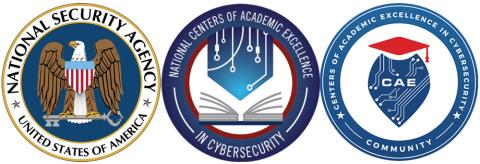National Center of Academic Excellence in Cyber Defense

The School of Criminology and Security Studies, Bachelor of Science (BS) in Cybercriminology and Security Studies, Cybercrime Program was recently validated as a Program of Study by the National Security Agency (NSA). As a result, Indiana State University pursued and obtained designation as a National Center of Academic Excellence in Cyber Defense. The NSA recognized and sponsored the CAE-CD with the goal of reducing vulnerability in our national information infrastructure by promoting higher education and research in cyber defense and producing professionals with cyber defense expertise.